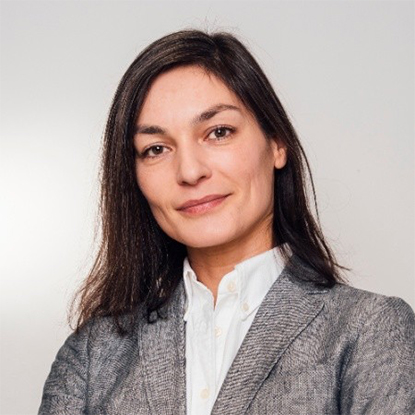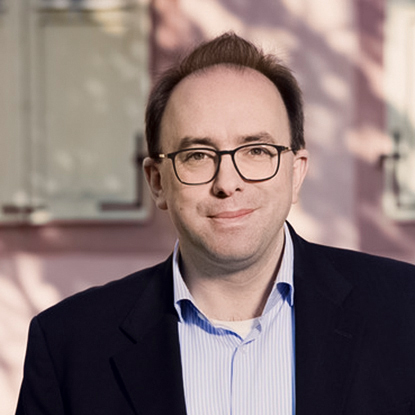-
![Experimenteller Aufbau für den Betrieb einer Quantenprozessor-Architektur mit über 1.000 Einzel-Atom-Quantenbits an der TU Darmstadt.]() Picture: Klaus Mai
Picture: Klaus Mai![Experimenteller Aufbau für den Betrieb einer Quantenprozessor-Architektur mit über 1.000 Einzel-Atom-Quantenbits an der TU Darmstadt.]() Picture: Klaus Mai
Picture: Klaus Mai1,000 atomic qubits and rising
2024/02/15
A new record for atom-based quantum computers
Making quantum systems more scalable is one of the key requirements for the further development of quantum computers because the advantages they offer become increasingly evident as the systems are scaled up. Researchers at TU Darmstadt have recently taken a decisive step towards achieving this goal. The results of their research have now been published in a prestigious publication.
-
![]() Picture: Till Böhmer
Picture: Till Böhmer![]() Picture: Till Böhmer
Picture: Till BöhmerThe internal clock of materials
2024/01/26
Publication in “Nature Physics”
Physicists in Darmstadt are investigating ageing processes in materials. For the first time, they have measured the ticking of an internal clock in glass. When evaluating the data, they discovered a surprising phenomenon.
-
![]()
![]()
M+M Symposium
2023/12/13
The first M+M Symposium took place on 2. November 2023 in the Georg-Christoph-Lichtenberg-Haus of the TU Darmstadt. The programme included the presentation of the four profile topics and open discussion sessions.
-
![]()
![]()
Breakthrough in the synthesis of artificial cells
2023/12/05
International Team publishes results in “Nature Chemistry“
A groundbreaking study published in “Nature Chemistry” reveals a remarkable leap in the synthesis of artificial cells using synthetic materials, achieved by an international team led by Dr. Andrea Belluati, Prof. Nico Bruns (both TU Darmstadt) and Dr. Sètuhn Jimaja (University of Fribourg). These cells, crafted through a process called biocatalytic polymerization-induced self-assembly (bioPISA), represent a significant advancement in the field of synthetic biology.
-
![]() Picture: APQ
Picture: APQ![]() Picture: APQ
Picture: APQResearch at TU Darmstadt selected as breakthrough in optics in 2023
2023/12/01
Scientists at TU Darmstadt extend research on quantum computing to new dimension
December of each year, OPTICA, the U.S. optical society, selects scientific breakthroughs of particular interest to the broad optics community that have emerged over the past year. In this year, research conducted in the group of Prof. Gerhard Birkl at the Institute of Applied Physics at Technische Universität Darmstadt has been highlighted in this exclusive list. The special issue “Optics in 2023” of the journal „Optics & Photonics News” (OPN) reports on work conducted by Malte Schlosser, Dominik Schäffner, and their colleagues, towards advancing unique architectures for quantum computing and quantum simulation.
-
![Porträt von Prof. Gutfleisch]()
![Porträt von Prof. Gutfleisch]()
Zukunftsweisende Forschung zu Magneten
2023/11/24
DFG verlängert Sonderforschungsbereich/Transregio (TRR) 270
Die Deutsche Forschungsgemeinschaft (DFG) verlängert zwei Sonderforschungsbereiche (SFB) der TU Darmstadt für eine weitere Förderperiode. Ein TRR ist in der Materialwissenschaft angesiedelt.
-
![Porträtbild von Professor Dr. Achim Schwenk]()
![Porträtbild von Professor Dr. Achim Schwenk]()
Visionäre Forschung zu Atomkernen
2023/11/24
DFG verlängert Sonderforschungsbereich 1245
Die Deutsche Forschungsgemeinschaft (DFG) verlängert zwei Sonderforschungsbereiche (SFB) der TU Darmstadt für eine weitere Förderperiode. Ein SFB ist in der Kernphysik angesiedelt.
-
![]() Picture: AG Hausch
Picture: AG Hausch![]() Picture: AG Hausch
Picture: AG HauschIn search of active substances against stress-related diseases
2023/11/10
Researchers at TU Darmstadt present two new publications
Depression, obesity or chronic pain – all of these disorders can be triggered or promoted by stress. In two recent publications in renowned scientific journals, researchers at TU Darmstadt show new ways of treating stress-related diseases.
-
![Laborbild Versuchsanordnung zu Festkörper-Quantenoptik]()
![Laborbild Versuchsanordnung zu Festkörper-Quantenoptik]()
Bilder wie von Geisterhand
2023/10/13
Forschung der Arbeitsgruppe Experimentelle Festkörper-Quantenoptik
Die Quantenphysik ermöglicht eine neue Form der Bildgebung, die die Krebsdiagnostik präziser machen könnte. Physiker aus Darmstadt, Jena und Barcelona haben die Methode praxistauglicher gemacht.
-
![]() Picture: Jan Christoph Hartung
Picture: Jan Christoph Hartung![]() Picture: Jan Christoph Hartung
Picture: Jan Christoph HartungOver two million euros for doctoral programme
2023/09/22
TU Graduate School Life Science Engineering receives EU funding
Excellent research at the interface between engineering and life sciences: 15 interdisciplinary international doctoral students are to receive top-level training at TU Darmstadt as part of a newly approved programme. This will support and expand the range of courses offered by the Graduate School Life Science Engineering.
Research Field M+M
Archive
Archive






















